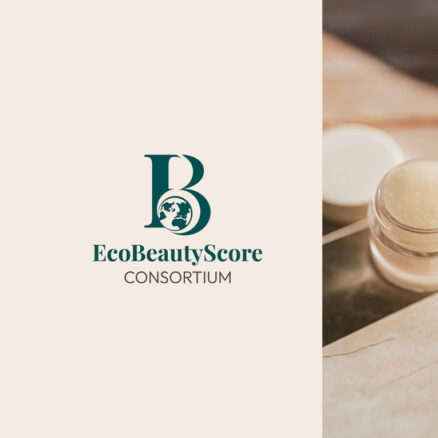LONDON, October 26, 2023—The fashion and apparel industry is under pressure. More than 85% of leading brands (by sales) have publicly declared decarbonization targets for their supply chains. In addition, more than 35 new pieces of sustainability-linked legislation are forecasted to go into effect around the world in the next two to four years, targeting import restrictions, product design guidelines, labeling requirements, and more.
Given that raw materials can constitute as much as two-thirds of a fashion and apparel brand’s climate impact, securing access to sustainable materials is essential. However, demand for low-climate-impact (“preferred”) raw materials could exceed supply by as much as 133 million tons by 2030.
These are among the findings of a new report released today by Boston Consulting Group (BCG), in collaboration with Textile Exchange and Quantis. Titled Sustainable Raw Materials Will Drive Profitability for Fashion and Apparel Brands, the report says that brands must act today to significantly increase the share of preferred raw materials in their portfolio. Brands that succeed will be positioned to capture an average net profit increase of 6% over a five-year period, based on the report’s model. In fact, at the high end of the range in the model, a fashion brand with $1 billion in annual revenues has the potential to tap a cumulative opportunity of approximately $100 million over five years.
“Fashion and apparel brands face a two-part challenge: they must double down on driving carbon reduction while preparing for upcoming regulations,” said Jocelyn Wilkinson, a BCG partner and a coauthor of the report. “Success on both counts relies on a robust strategy for preferred raw materials—one that helps brands lock in a supply of sustainable materials for the future. Putting that strategy into immediate action promises to pay off.”
Sustainability-Linked Regulations on the Rise
The pending regulations have greater depth and breadth than the fashion and apparel industry has seen before, and many brands may struggle to adapt. Based on a review of luxury brands, the report estimates that just 15% currently comply with all the guidelines of a flagship sustainability-linked regulation (in this case, the 2015 UK Modern Slavery Act).
Failure to comply poses a real threat to a brand’s bottom line. Products may be denied entry to markets until brands can satisfy new requirements and labeling laws—placing up to 8% of their earnings before interest and taxes (EBIT) at risk.
The Growing Materials Gap
Despite the growing number of pledges and decarbonization targets across the fashion and apparel industry, Tier 4 suppliers have yet to receive a strong enough signal that brands will commit to and invest in preferred raw materials. Consequently, raw-materials producers, farmers, and growers lack the incentive to take on the risks associated with increasing the supply.
The report projects that just 19% of materials produced in 2030 will be preferred, given the current lack of economies of scale. Without proper investment, the demand-and-supply gap for preferred raw materials will rise to as much as 133 million tons by the end of the decade—equal to more than six times India’s production of these materials in 2021.
“Fashion and apparel brands need to take immediate action to invest in the supply of preferred raw materials, thereby securing resources and transforming their business models for a sustainable future,” said Philipp Meister, global lead for fashion and sporting goods at Quantis and a coauthor of the report. “This will require brands to rethink product portfolios, strengthen supplier relationships, and build company-wide engagement—all of which could take years.”
The Materials Manifesto
The report outlines six principles for brands looking to create a robust materials strategy:
- Invest in and embed full traceability to de-risk supply chains and fully understand materials’ impacts.
- Use a science-backed approach to strengthen decision making and satisfy stakeholders.
- Diversify the materials portfolio to spread risks and future-proof operations.
- Build a business case that leads to a triple win—for brands, for suppliers, and for nature.
- Strengthen supply chain relationships—they will make or break brands going forward.
- Ensure that knowledge, tools, and incentives are engrained throughout the company.
“In the face of the climate crisis, the policy landscape, and investor and consumer scrutiny, fashion and apparel brands cannot afford to underinvest in their raw-materials strategies any longer,” said Beth Jensen, director of climate+ impact at Textile Exchange and a coauthor of the report. “Brands must act boldly now to invest in the supply chain relationships that will enable achievement of their climate goals by 2030—a key milestone year that is rapidly approaching.”
Media Contact:
Johanna Steves, Global PR + Media Lead, Quantis
+33 (0)6 58 65 02 66
steves.johanna@quantis.com
About Boston Consulting Group
Boston Consulting Group partners with leaders in business and society to tackle their most important challenges and capture their greatest opportunities. BCG was the pioneer in business strategy when it was founded in 1963. Today, we work closely with clients to embrace a transformational approach aimed at benefiting all stakeholders—empowering organizations to grow, build sustainable competitive advantage, and drive positive societal impact.
Our diverse, global teams bring deep industry and functional expertise and a range of perspectives that question the status quo and spark change. BCG delivers solutions through leading-edge management consulting, technology and design, and corporate and digital ventures. We work in a uniquely collaborative model across the firm and throughout all levels of the client organization, fueled by the goal of helping our clients thrive and enabling them to make the world a better place.
About Textile Exchange
Textile Exchange is a global non-profit driving beneficial impacts on climate and nature across the fashion, textile, and apparel industry. It guides a growing community of brands, manufacturers, and farmers towards more purposeful production from the very start of the supply chain.
Its goal is to help the industry to achieve a 45% reduction in the emissions that come from producing fibers and raw materials by 2030. To get there, it is keeping its focus holistic and interconnected, accelerating the adoption of practices that improve the state of our water, soil health, and biodiversity too.
For real change to happen, everyone needs a clear path to beneficial impact. That’s why Textile Exchange believes that approachable, step-by-step instruction paired with collective action can change the system to make preferred materials and fibers an accessible default, mobilizing leaders through attainable strategies, proven solutions, and a driven community.
At Textile Exchange, materials matter. To learn more, visit textileexchange.org
About Quantis
Quantis is a global sustainability consultancy pioneering approaches to solve critical environmental challenges. The group partners with leading organizations who are serious about reducing their environmental impacts to future-proof their businesses and prosper in a new planetary economy. Quantis’ unique approach combines deep environmental expertise, strategic business knowledge, and enterprise transformation skills to help organizations shape policies, practices and business models that align with the planet’s capacity while building resilience, unlocking innovation, and optimizing performance. With offices in the US, France, Switzerland, Germany and Italy and clients around the world, Quantis is a key partner in inspiring sustainable change on a global scale.



